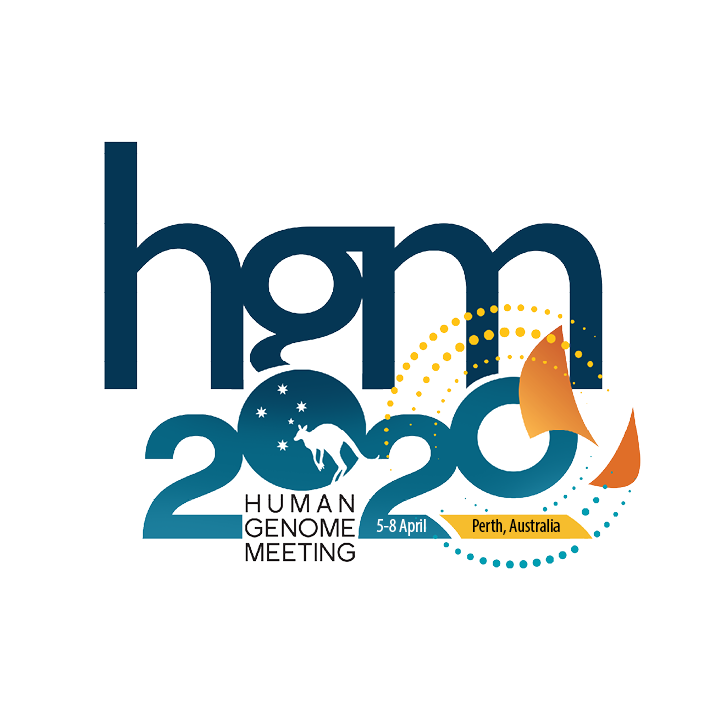Plenary Speakers
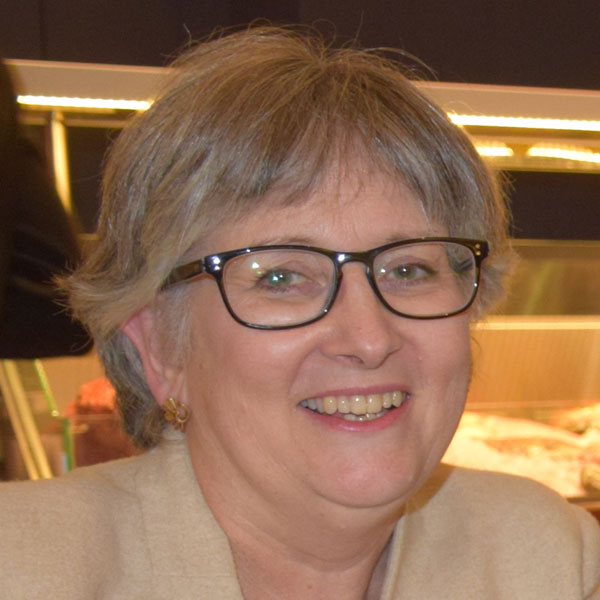
Prof Georgia Chenevix-Trench
QIMR-Berghofer Medical Research Institute, Brisbane, Australia
Professor Georgia Chenevix-Trench is a Senior Principal Research Fellow of the NHMRC and Fellow of the Australian Academy of Sciences and of the Australian Academy of Health and Medical Sciences. She is the author of more than 450 peer-reviewed papers, and has been instrumental in the collection of public resources such as kConFab, the Australian consortium for research into familial breast cancer. She is the leader of the Consortium of Investigators of Modifiers of BRCA1/2, and a founding member of the Breast and Ovarian Cancer Association Consortia, which have identified almost 200 novel breast and ovarian cancer susceptibility loci since the advent of genome-wide association studies. A major focus of her current research is to determine the function of alleles associated with breast cancer risk, and to identify their target genes in breast and immune cells.
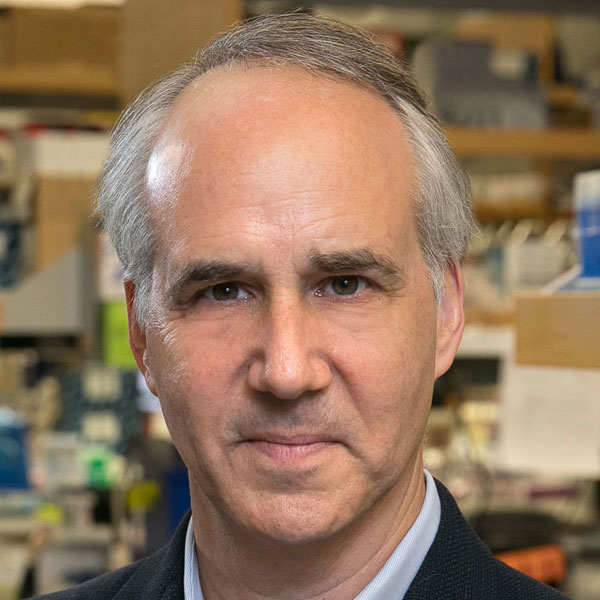
Daniel Geschwind M.D. Ph.D
University of California, Los Angeles (UCLA) David Geffen School of Medicine
Gordon & Virginia MacDonald Distinguished Professor
Departments of Neurology, Psychiatry and Human Genetics
Director, Center for Autism Research and Treatment
Senior Associate Dean & Associate Vice Chancellor, Precision Health
Director, Institute for Precision Health
Dr. Daniel Geschwind is the Gordon and Virginia MacDonald Distinguished Professor of neurology, psychiatry and human genetics at the UCLA School of Medicine, and the Senior Associate Dean and Associate Vice Chancellor of Precision Medicine at UCLA. Dr. Geschwind obtained his M.D./Ph.D (neurobiology) at Yale School of Medicine (AOA) and completed his internship, residency (Neurology), and postdoctoral fellowship at UCLA, joining the faculty in 1997. Dr. Geschwind’s laboratory takes a system biology approach, integrating genetic, genomic and bio-informatic approaches with basic neurobiological investigation in model systems and human brain. The over-arching goal of these efforts is to develop new therapeutics for nervous system disorders for which disease-altering therapies are not currently available, including autism and neurodegenerative disorders. He serves on the editorial boards of several journals including Cell, Current Opinion in Genetics & development, Neuron and Science and has published over 450 manuscripts. Dr. Geschwind is also a strong advocate for data and biomaterial sharing, having provided scientific oversight for the Autism Genetic Resource Exchange (AGRE), and is an elected member of the American Academy of Physicians and the National Academy of Medicine, USA.
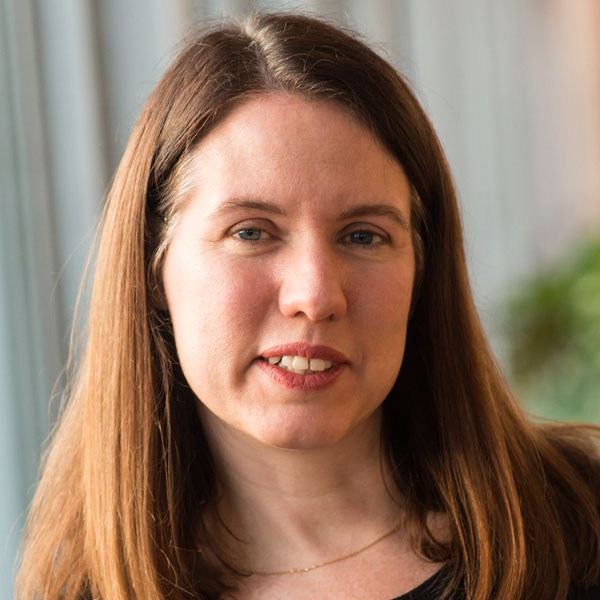
Dr Janet Kelso
Max Planck Institute for Evolutionary Anthropology, Leipzig, Germany
Janet Kelso is head of the Bioinformatics research group at the Max-Planck Institute for Evolutionary Anthropology in Leipzig, Germany. Her research focusses on the analysis of ancient genomes, particularly the genomes of archaic humans. Her group has a special interest in the development of novel computational approaches for the analysis of ancient DNA and in using these approaches to gain insights into genome evolution. Janet received her PhD in bioinformatics from the South African National Bioinformatics Institute at the University of the Western Cape under the supervision of Professor Winston Hide. She is author of more than 80 peer-reviewed scientific publications. Together with Alfonso Valencia, Janet is the co-Editor-in-chief of the journal Bioinformatics, and also an editor of the journal Database. Janet is an active member of the Board of the International Society of Computational Biology and has held positions as both Vice-president and Secretary. She was named a Fellow of the Society in 2015.

Dr Razelle Kurzrock
University of California San Diego Moores Cancer Center, California, USA
Dr. Razelle Kurzrock is known for developing the largest Phase 1 clinical trials department in the nation/world while at the University of Texas M.D. Anderson Cancer Center. A central theme of that program was the personalized medicine strategy, embodied in a protocol called PREDICT for Profile-related Evidence Determining Individualized Cancer Therapy. This approach utilized advanced molecular technologies to match patients with targeted cancer treatment that is more likely to work for their individual tumors.
At Moores Cancer Center, Dr. Kurzrock’s charge is broad, including not just growing and innovating the center’s clinical trials program, but also heading its newly established Center for Personalized Cancer Therapy. This center focuses on precision medicine trials, using the most innovative genomically-targeted drugs and/or agents that arm the immune system. As a physician-scientist, Dr. Kurzrock brings extraordinary expertise and experience in clinical research, business operations, regulatory operations, financial and budget planning, and administrative oversight, in addition to her world-recognized work in translational science. Dr. Kurzrock is also Chief of the Division of Hematology and Oncology in the UC San Diego School of Medicine. Dr. Kurzrock received her MD degree from the University of Toronto and has about 750 peer-reviewed publications and a uniquely strong record of competitive grant funding within the setting of Phase I program building.
Dr Kurzrock also has a strong history of building outstanding education/training programs. At University of Texas MD Anderson Cancer Center, she founded and directed the MS/PhD program (degree granting) in Human Biology and Patient-Based Research, as well as the Fellowship in Investigational Cancer Therapeutics. At UCSD Moores Cancer, she founded and directs the Fellowship in Personalized Cancer Therapy.
Dr. Kurzrock has four children and three dogs and lives with her husband, Dr. Philip Cohen, a dermatologist, in San Diego, CA.
Symposium Speakers
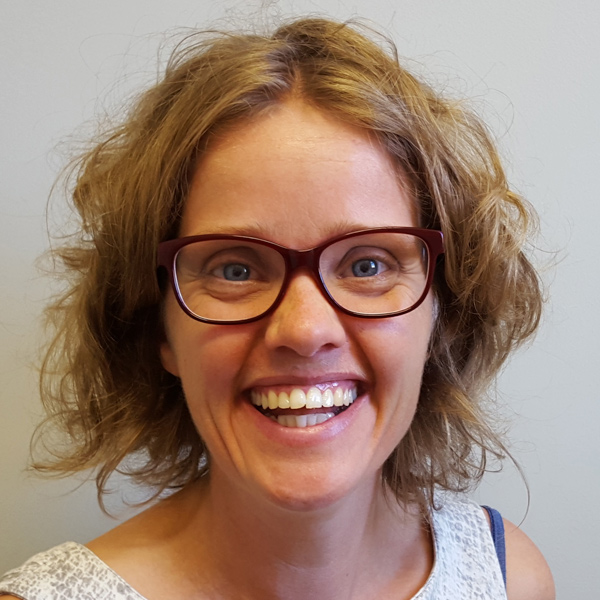
A/Prof Jantina de Vries
University of Cape Town, South Africa
Jantina de Vries is an Associate Professor in Bioethics at the Department of Medicine of the University of Cape Town. Her work focuses on developing ethical best practice for genomics research in Africa. She has contributed to developing an evidence base for best practice in informed consent for African genomics research, investigating ethical challenges relating to the sharing of African samples and data, exploring what constitutes fairness in African genomics research collaborations, and studying how genomic research may impact on stigma relating to disease. A second and equally important output relates to the translation of her work into forward-looking policies and best practice guidelines.
Jantina obtained her DPhil through The Ethox Centre at the University of Oxford (2011), and an MSc degree in sociology at Wageningen University (2003). She was at the European University Institute between 2003-2004. She is a member of the WHO Expert Advisory Board on Gene Editing.
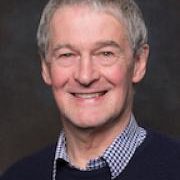
Professor Simon Easteal
Director – Executive
National Centre for Indigenous Genomics, ANU
Prof Simon Easteal is a Research Professor at the John Curtin School of Medical Research at the ANU, where he has been the Deputy Director and is now Group Leader, Genome Diversity and Health Group, and Director of the National Centre for Indigenous Genomics. He was born and raised in Sri Lanka, educated there, in Scotland and in Australia. Before becoming an academic researcher he worked for a time in the bauxite mine at Weipa in North Queensland. He has held numerous academic appointment in the US and Fiji and Australia.
He has a wide range of research interests and a strong commitment to understanding the broader societal implications of his research. His is interested in the evolutionary interplay between humans and their environments, how this interplay has made us such a diverse species, and how it impacts our health and wellbeing. This evolutionary perspective provides a framework for understanding the impact of human diversity on health.
Prof Easteal has served on numerous editorial boards, advisory committees, government taskforces, working parties and other bodies in public and private organisations, and he has provided expert opinion in relation to genetic evidence used in court cases in most Australian jurisdictions. He founded a personalised medicine company, and has been a member of the scientific advisory boards of two biotechnology companies.
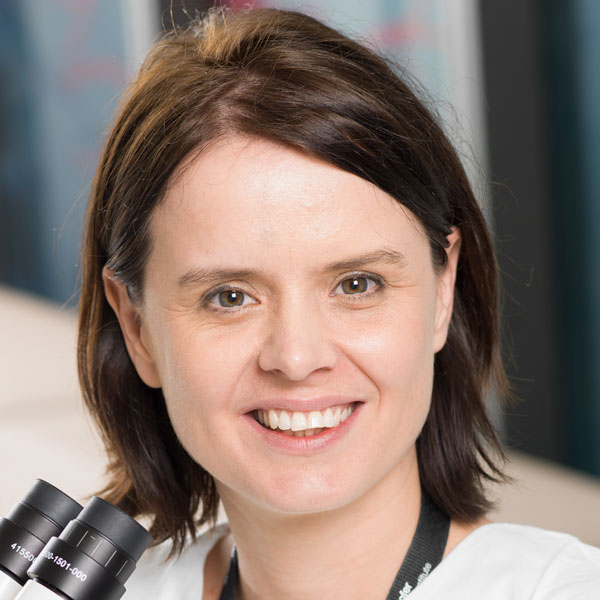
Juliet French
Genetics and Computational Biology Department, QIMR Berghofer Medical Research Institute
Associate Professor Juliet French is a molecular biologist and Head of the Functional Genetics Laboratory at QIMR Berghofer Medical Research Institute. She conducted her PhD and post-doctoral studies at UQ with a research focus on mechanisms of gene regulation. Her research focuses on understanding how genetic variants in non-coding regions of the genome influence cancer risk and progression. Until recently, the genetic basis of cancer has only been examined in coding regions, which accounts for less than 2% of the human genome. However, noncoding regions are littered with functional elements such as transcriptional enhancers and long non-coding RNAs. The laboratory focus’s on how inherited variants identified through genome wide association studies (GWAS) and cancer specific mutations identified through whole gene sequencing (WGS) can alter these non-coding elements to promote the development of cancer. The ultimate aim is to use genetics to pinpoint the key genes and pathways implicated in the development of cancer to identify new therapeutic opportunities.
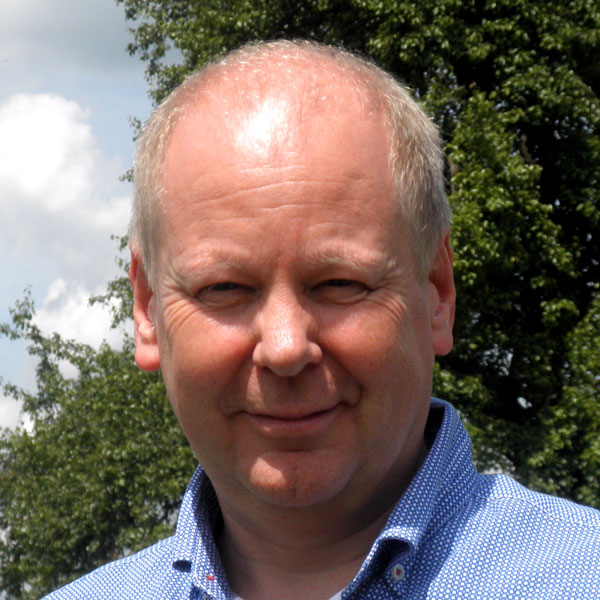
Prof Dr Peter Heutink
Head Genome Biology of Neurodegenerative diseases and
Speaker of the German Center for Neurodegenerative Diseases (DZNE)-Tübingen
Peter Heutink was trained as a molecular biologist at the University of Amsterdam and performed his PhD at the department of Clinical Genetics of the Erasmus Medical Center Rotterdam. During his thesis work on the genetics of complex diseases he performed genome wide linkage scans for neuropsychiatric disorders and worked together with prof Kidd from Yale University in 1989 to develop strategies for genetic studies for complex diseases. In 1991 he worked in the laboratory of Dr. Weber at the Marshfield Clinic in Wisconsin and identified linkage for hereditary paragagliomas. This study demonstrated for the first time statistical evidence for genomic imprinting in a large family in what has become a textbook example.
He then successfully worked on the positional cloning of a number of diseases. In 1993 he identified mutations that disrupt a long-range regulatory element for the Sonic hedgehog gene and that cause a limb malformation. This “enhancer” element is still widely regarded as the classic example of how very distant regulatory elements in the human genome can influence gene expression. In these years he identified mutations for important human diseases such as Hemochromatosis, Porencephaly and several developmental disorders including mental retardation. Much of this work was performed in genetically isolated populations. In 1994 he switched his focus to neurodegenerative diseases and was the senior author of the seminal Nature paper by Hutton et al. (1998) describing for the first time mutations in the Microtubule Associated Protein Tau for Frontal temporal dementia. This finding was not only of importance for the understanding of this early onset dementia but also demonstrated for the first time that mutations in tau could lead to neurodegeneration which has led to a reformulation of the amyloid cascade hypothesis, the single most central hypothesis for Alzheimer disease.
Prof. Heutink identified additional genes for neurodegenerative diseases such a chorea, early onset Parkinson’s disease and Ataxia. In 2003 he moved to the VU University Medical Center (VUMC) in Amsterdam where he co-founded the Center for Neurogenomics and Cognitive Research, a joined research institute of the Life Science Faculty at the VU University Amsterdam and the VUMC and was director of the Institute for Clinical and Experimental Neurosciences (ICEN). In 2008 he coordinated the merger of these two research institutes into the Neuroscience Campus Amsterdam.
Prof. Heutink is co-founder and co-director of Synaptologics (www.sylics.com) an SME that performs and develops software for automated mouse phenotyping.
He was involved in a series of Genome Wide Association (GWA) and exome sequencing studies. His group developed statistical methods to investigate genetic variation in gene networks instead of single genes, ways to efficiently detect epistasis and methods to better predict the causal risk variant in GWAS studies. He headed several projects to generate genetic and genomic maps for different world populations, an important resource for extending the scope of genetic studies to non-Western populations.
In 2012 he became the speaker of the new German Center for Neurodegenerative Diseases (DZNE) in Tübingen and recruited international renowned researchers on Parkinsons disease, Alzheimers Disease and Frontotemporal Dementia/Amyothropic Lateral Sclerosis to the DZNE- Tübingen (https://www.dzne.de/en/about-us/sites/tuebingen/).
His own research has focused on genomic approaches to understand Neurodegenerative disease and he is a core member of the FANTOM project headed by the RIKEN OSC in Japan, which aims to improve the functional annotation of the human genome (http://fantom.gsc.riken.jp/). In the last few years several landmark papers of the FANTOM consortium where published in Nature, Nature Genetics and Nature Biotechnology, describing resources that will be essential to understand the biology underlying the increasing number of genetic risk factors for human diseases. In a similar fashion his group has developed automated high throughput cellular screening methodologies to investigate large numbers of genetic variations in their cellular context.

Prof Rory Johnson
Department for BioMedical Research (DBMR), University of Bern, 3008 Bern, Switzerland
Department of Medical Oncology, Inselspital, University Hospital and University of Bern, 3010 Bern, Switzerland
Rory Johnson received his MSc in Physics and Biophysics from Imperial College in London. He obtained his PhD in 2007 with the Wellcome Trust programme at the University of Leeds (UK), for a thesis focussed on gene regulation in the nervous system. During his postdoc at the Genome Institute of Singapore, he learned next generation sequencing and bioinformatics techniques, and became interested in the nascent field of long noncoding RNAs. He moved to the group of Roderic Guigó at the Centre for Genomic Regulation (Barcelona), where he won a Ramón y Cajal fellowship and worked with the GENCODE consortium to improve annotations of long noncoding RNAs. In 2016 he was chosen by the Swiss Centre for Competence in Research “RNA & Disease” to found a new laboratory, Genomics of Long noncoding RNAs and Disease (GOLD Lab), which is dedicated to developing new therapies based on long noncoding RNAs.
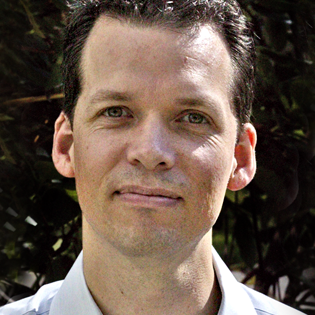
Daniel MacArthur, Ph.D.
Institute Member, Co-Director of the Medical and Population Genetics Program
Broad Institute
Daniel MacArthur is an institute member at the Broad Institute of MIT and Harvard, and co-director of the Broad’s Program in Medical and Population Genetics. In addition to his roles at the Broad, MacArthur is a group leader in the Analytic and Translational Genetics Unit at Massachusetts General Hospital and an assistant professor at Harvard Medical School. His work revolves around the use of large-scale genomic data to interpret genetic variants, particularly in the context of rare, severe genetic diseases.
MacArthur’s team has assembled the largest collection of sequences of the protein-coding region (exome) of the human genome, creating a resource called the Genome Aggregation Database (gnomAD). This collection currently contains DNA sequencing data from over 140,000 individuals, and is made publicly available for anyone to use. As a result it has become the default reference database for clinical genetics labs, and is accessed over 15,000 times every day. It also serves as the basis for the Human Knockout Project, an ambitious global endeavor seeking to characterize the clinical impact of the disruption of each of the 20,000 genes in the human genome.
In addition, MacArthur leads a number of efforts applying genomic technologies to the diagnosis of very rare genetic diseases. He co-leads the Broad’s Center for Mendelian Genomics, which uses both DNA and RNA sequencing technologies to investigate the genetic basis of rare diseases in thousands of families every year. In the first three years of the Center’s operation it has been able to return genetic diagnoses to over 1,200 families – many of whom had been waiting many years for an answer using standard clinical testing – and identified nearly 100 likely new genes associated with a wide variety of diseases.
MacArthur was recognized for his work with the Harvard Medical School’s Young Mentor Award in 2016, the Massachusetts General Hospital Martin Prize in 2017, and was also the first ever recipient of the American Society of Human Genetics Early-Career Award in 2017.
MacArthur completed his Ph.D. at the Institute for Neuromuscular Research in Sydney, Australia, where he studied a loss-of-function variant in the human ACTN3 gene associated with variation in muscle strength and athletic performance. He later served as a postdoctoral fellow at the Wellcome Trust Sanger Institute in Hinxton, UK, where he led the annotation of gene-disrupting (“loss-of-function”) variants as part of the 1000 Genomes Project Consortium.
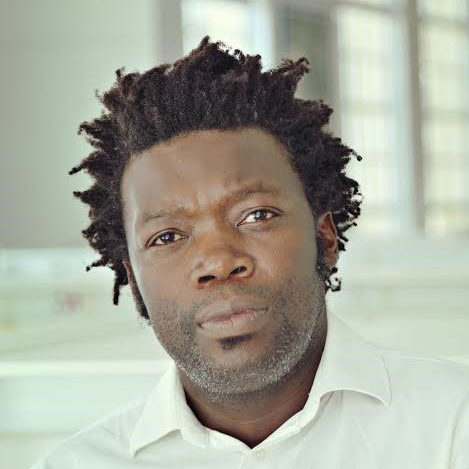
Prof Musa Mhlanga
Honorary Research Professor
Division of Chemical Systems & Synthetic Biology
Department of Integrative Biomedical Sciences, University of Cape Town, South Africa
Musa M. Mhlanga (USA citizen), American-born male cell biologist, holds a PhD in cell biology & molecular genetics from New York University School of Medicine (2003). He began his PhD at the Rockefeller University in the laboratory of David Ho where he worked on spectral genotyping of human alleles. He then went on to work on the development of in vitro and in vivo applications of molecular beacons for their use in visualizing RNA in living cells with Fred Russell Kramer and Sanjay Tyagi at New York University School of Medicine. Upon completion of his doctoral work he was awarded a U.S. National Science Foundation post-doctoral fellowship at the Institut Pasteur in Paris, France to work in the laboratory of nuclear cell biology. There he worked on RNA transport and single molecule visualization and tracking of RNA in living cells. In late 2008 he moved his lab to South Africa to join the Council of Scientific and Industrial Research as the Research Leader of the Synthetic Biology Emerging Research Area. Recently he moved his laboratory to the University of Cape Town Medical School. His laboratory works on gene regulation, host-pathogen interactions, single molecule imaging of gene expression and the development of cell-based visual high-throughput biology techniques for screening in basic and clinical biology.

Prof Kathryn North
Murdoch Children’s Research Institute and the David Danks Professor of Child Health Research at the University of Melbourne.
Professor Kathryn North AC is Director of the Murdoch Children’s Research Institute and the David Danks Professor of Child Health Research at the University of Melbourne.
Professor North is trained as a paediatric physician, neurologist and clinical geneticist and was awarded a doctorate for research in neurogenetics. She completed a postdoctoral fellowship in the Harvard Genetics Program.
Professor North is a national and global leader in genomic medicine. She leads Australian Genomics, an NHMRC-funded national network of 80 institutions around Australia, with the goal of developing evidence and practical strategies to embed genomic medicine in the Australian health system. She is Vice Chair of the Global Alliance for Genomics and Health, a collaborative network of over 500 organisations across 71 countries.
Professor North served as Chair of the National Health and Medical Research Council Research Committee from 2012-2018, and currently chairs the International Advisory Board of the UCL Great Ormond Street Institute of Child Health (UK). She has received a number of awards for her research including the GSK Australia Award for Research Excellence (2011), the Ramaciotti Medal for Excellence in Biomedical Research (2012) and a Member (AM) of the Order of Australia (2012). In 2014 she was appointed as a Foundation Fellow of the Australian Academy of Health and Medical Science and in 2019 she was awarded a Companion (AC) of the Order of Australia In recognition of her eminent service to genomic medicine and medical research.
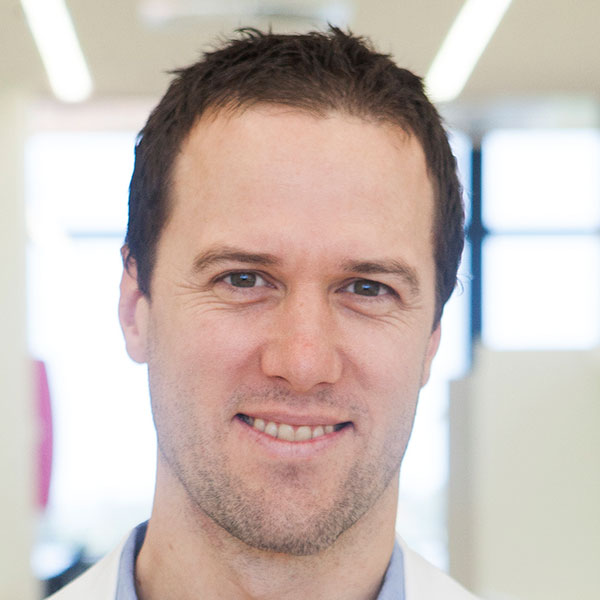
Prof Ryan Lister
The Harry Perkins Institute of Medical Research, The University of Western Australia, Perth, Australia
Ryan Lister leads a research group investigating the epigenome and cell identity, at the University of Western Australia and the Harry Perkins Institute of Medical Research. After receiving his PhD from UWA in 2005, Ryan undertook postdoctoral studies at The Salk Institute for Biological Studies, where he developed and applied new techniques to map the epigenome and transcriptome. Having returned to UWA in 2012, Ryan’s laboratory is focused upon understanding regulation of cell identity, how the epigenome patterns are established and changed, how they affect the readout of underlying genetic information, their involvement in development and disease, and developing molecular tools to precisely edit the epigenome.
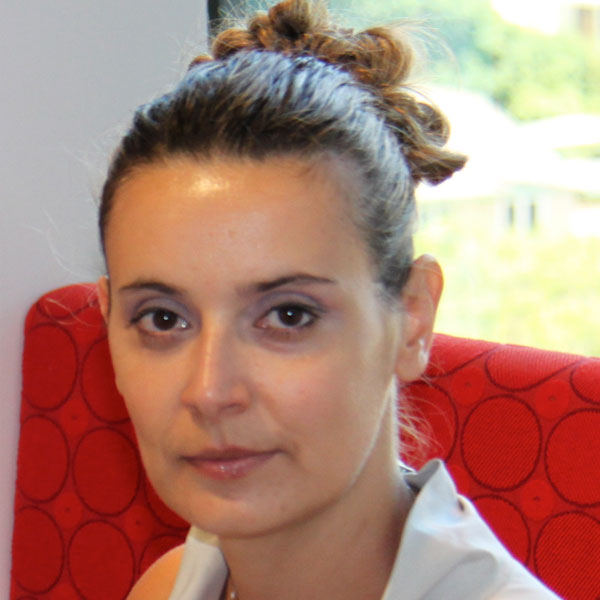
Prof Aleksandra Filipovska
The Harry Perkins Institute of Medical Research, The University of Western Australia, Perth, Australia
Professor Aleksandra Filipovska received her Doctorate in 2002 from the University of Otago, New Zealand. From 2003-2005 she was a NZ Foundation for Research, Science and Technology Fellow at the MRC Mitochondrial Biology Unit in Cambridge, the United Kingdom. In 2006 she relocated to Australia as a NHMRC Howard Florey Fellow and established her research group at the Perkins Institute of Medical Research at the University of Western Australia. She was an Australian Research Council Future Fellow until 2014 and currently she is a NHMRC Senior Research Fellow and a Professor at UWA and the Perkins Institute of Medical Research. Since the start of her career, her research has focused on the study of mitochondrial diseases, understanding the cause and pathology of these diseases and developing treatments for mitochondrial diseases. Prof Filipovska’s team has discovered genetic mutations that cause mitochondrial disease, created models of mitochondrial, cardiovascular and metabolic diseases and is actively working on therapeutic strategies to combat mitochondrial dysfunction in disease.
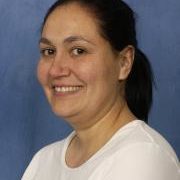
Mrs Azure Hermes
Indigenous Community Engagement Coordinator
Azure Hermes is from the Gimuy Walubara Yidinji people, traditional custodians of the Cairns area. After eight years as a Navy Medical Sailor, Azure has made a career of bridging the gap between policy intention and policy implementation affecting Indigenous Australians. Working with Centrelink’s Remote Service Team based in Darwin and travelling widely throughout the Northern Territory, Azure was responsible for matching Indigenous customer needs with appropriate services, within government guidelines and with cultural sensitivity. As an Investigations Officer for the Commonwealth Ombudsman Office, Azure investigated and resolved complaints in relation to Indigenous programs of the Australian government.
As NCIG’ Indigenous Community Engagement Coordinator Azure is playing a central role in communicating to donors and their communities the story of the NCIG Collection and its potential benefit.
Azure has participated in the United Nations Permanent Forum on a number of occasions, and the World Indigenous Peoples Forum on the Environment. She was a Mentor for the Cape York Institute for Policy and Leadership. She was awarded the Humanitarian Medal for service in the Tsunami crisis in Indonesia whilst she was a member of the Australian Defence Force.
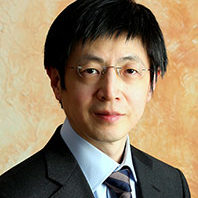
Jin-Soo Kim, Ph.D.
Director and Professor
Center for Genome Engineering, Institute for Basic Science, Seoul, South Korea
Department of Chemistry, Seoul National University, Seoul, South Korea
Jin-Soo Kim is an entrepreneur and chemist-turned-biologist. He graduated from Seoul National University in 1987 with a major in chemistry. He then earned a master’s degree in chemistry from Seoul National University in 1989 and a Ph.D. in biochemistry from the University of Wisconsin-Madison in 1994. After postdoctoral training at Howard Hughes Medical Institute/Massachusetts Institute of Technology, he came back to Seoul in 1997 to serve as Principal Investigator at Samsung Biomedical Research Institute. He co-founded a biotechnology company, ToolGen, Inc., focused on zinc finger technology in 1999, and served as CEO and CSO for the subsequent 6 years. He joined the faculty of the Department of Chemistry at Seoul National University in 2005. He now serves as Director of Center for Genome Engineering at Institute for Basic Science. He has published over 60 articles and filed 20 patent applications, mostly in the field of gene regulation and genome editing. He has been a member of Faculty of 1000 since May, 2013.
Throughout his independent scientific career, Jin-Soo Kim has been developing tools for genome editing, a method now used widely in biomedical research, biotechnology, and medicine. Genome editing enables genetic studies in model organisms and cell lines and gene correction in stem and somatic cells for the treatment of both genetic and acquired diseases. Furthermore, genome editing can be used to create value-added crops, livestock, fish, poultry, and pets. The broad interest in this rapidly evolving and expanding technology among researchers is highlighted by the choice of genome editing as the Method of the Year 2011 by Nature Methods and as the Breakthrough of the Year runner-up by Science in 2013. Genome editing in cultured cells, animals, and plants is catalyzed by programmable nucleases that cleave chromosomal DNA in a targeted manner. The Kim group has developed and improved three different types of programmable nucleases, namely, zinc finger nucleases (ZFNs), TAL effector nucleases (TALENs), and RNA-guided engineered nucleases (RGENs) derived from CRISPR/Cas, an adaptive immune system in prokaryotes. These tools are now used for genome editing in human stem cells, model organisms, livestock, and plants in thousands of labs all around the world.
The Kim group now focuses on target identification and validation for drug discovery using genome-scale collections of TALENs and RGENs and on gene correction in human pluripotent stem cells for the treatment of genetic disorders. He also collaborates with animal scientists to develop genome-engineered pigs appropriate for organ transplantation and with plant scientists to create value-added crops.
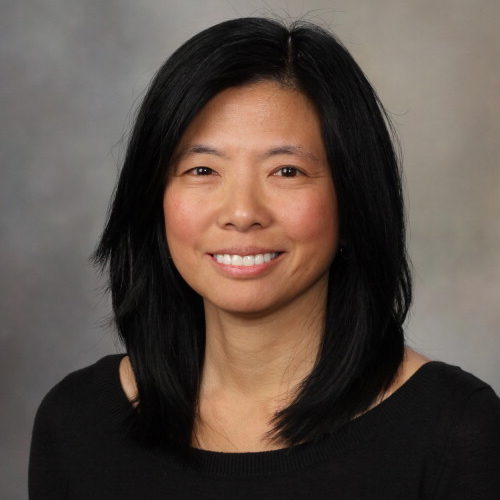
Minetta C. Liu, M.D
Consultant, Division of Medical Oncology, Department of Oncology
Mayo Clinic
Minetta C. Liu, M.D., conducts patient-oriented research focused on two major areas: The development of clinically relevant molecular markers to allow for the most accurate prediction of treatment benefit and patient outcomes in solid tumor malignancies, and the development of novel therapeutics to improve survival in early-stage and metastatic breast cancer.
Dr. Liu leads a collaborative effort to optimize and validate platforms for isolating and analyzing circulating tumor cells (CTCs), cell-free DNA (cfDNA), and other blood components. Although her clinical expertise is in breast cancer, her “liquid biopsy” efforts are not restricted to any particular malignancy. Dr. Liu’s current work includes the characterization of breast cancer stem cells in the peripheral circulation and the development of assays for the reliable detection of BRAF, EGFR, KRAS and ESR1 mutations to assist in treatment selection and disease monitoring in melanoma, lung cancer, colorectal cancer and breast cancer, respectively.
Dr. Liu also leads several collaborative multi-institutional clinical trials through such mechanisms as the Alliance for Clinical Trials in Oncology and the Translational Breast Cancer Research Consortium. The investigational agents explored in these studies have the potential to improve outcomes in all settings of breast cancer for hormone receptor positive breast cancer, HER2-positive breast cancer, and hormone receptor negative breast cancer and HER2-negative breast cancer. This includes a series of phase I trials with oncolytic measles virotherapy as part of the Mayo Clinic Specialized Program of Research Excellence in breast cancer.
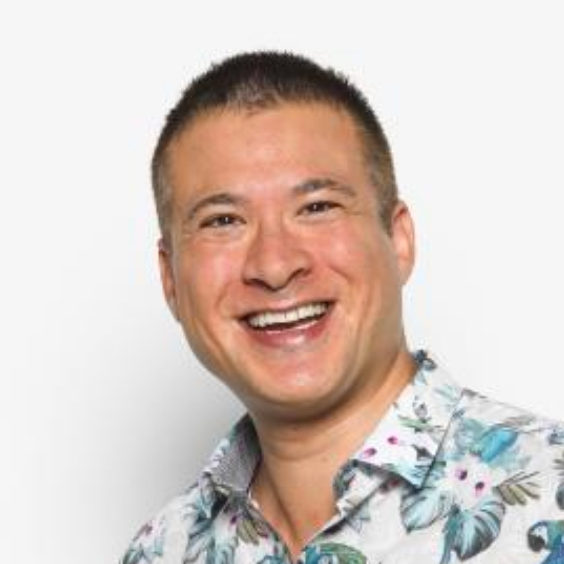
Nicholas Luscombe
Bioinformatics and Computational Biology Laboratory
The Francis Crick Institute
Following a degree in natural sciences at Jesus College, University of Cambridge (1993-1996), Nick studied for a PhD with Janet Thornton at UCL (University College London) (1996-2000) on the basis for specificity of DNA-binding proteins. He then moved to Yale University, USA, as an Anna Fuller Postdoctoral Fellow with Mark Gerstein (2000-2005), where he shifted research focus to genomics with a particular emphasis on yeast transcriptional regulation.
He was a Group Leader at the EMBL-European Bioinformatics Institute (2005-2012) in Cambridge and built a computational biology laboratory with an emphasis on genomics and gene regulation. During this time, he joined the Okinawa Institute of Science & Technology as an Adjunct Faculty to establish a small group focused on developmental regulation (2011-present).
He recently returned to UCL as a Chair in Computational Biology in the UCL Genetics Institute and holds a joint appointment as a Senior Winton Group Leader at the Francis Crick Institute, in recognition of the Winton Charitable Foundation’s generous donation towards establishing the Francis Crick Institute. Nick was elected as an EMBO Member in 2013.
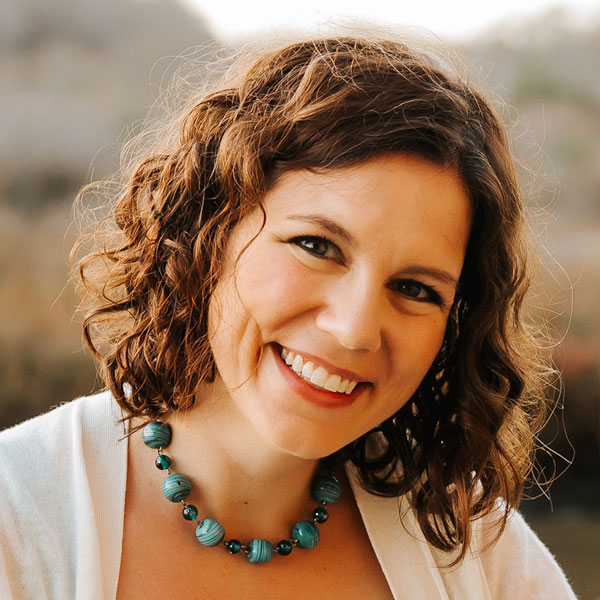
Dr Karen Miga
University of California Santa Cruz Genomics Institute, University of California, Santa Cruz, California, United States of America.
Dr. Miga is a satellite DNA biologist based out of UC Santa Cruz. Her research program combines innovative computational and experimental approaches to produce the high-resolution sequence maps of human centromeric and pericentromeric DNAs. In doing so, she is uncovering a new source of genetic and epigenetic variation in the human population, which is useful to investigate novel associations between genotype and phenotype of inherited traits and disease.
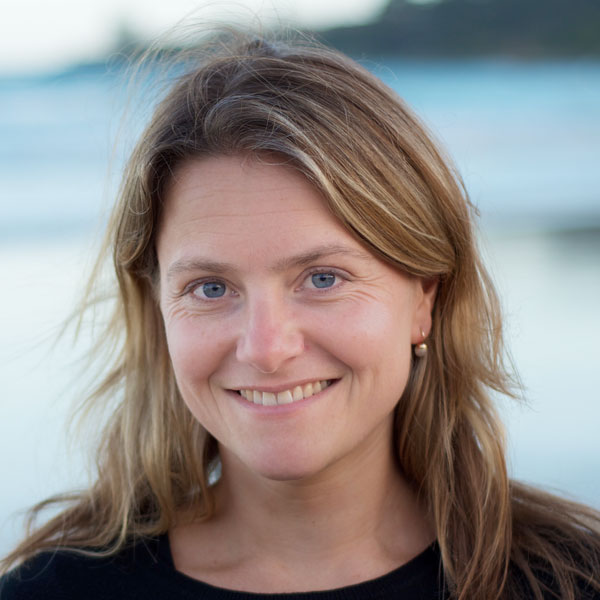
Alicia Oshlack
Murdoch Children’s Research Institute
Associate Professor Alicia Oshlack has been at the forefront of bioinformatics research for more than 15 years. She has been the head of Bioinformatics at the Murdoch Children’s Research Institute since 2011 and holds an NHMRC Career Development Fellowship II.
She is internationally recognised for her development of bioinformatics methods for a range of applications including transcriptomics, methylation and genomic analysis. In addition, Oshlack is involved in many cutting edge collaborative projects related to disease and development. She has published more than 80 papers and developed more than a dozen software packages.
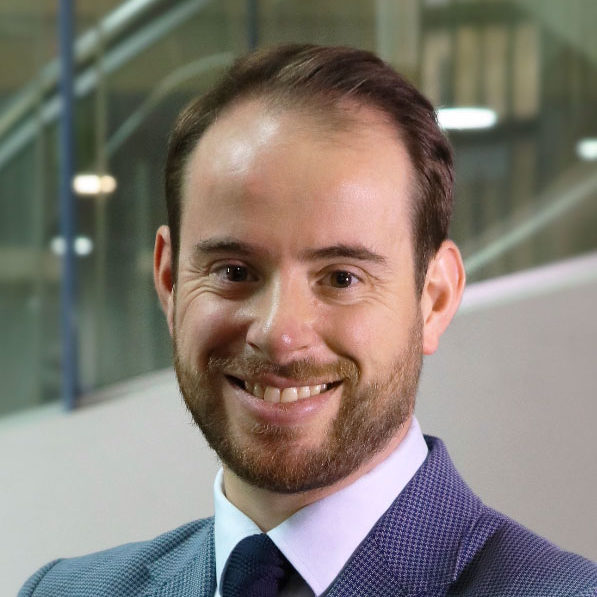
A/Prof Joseph Powell
Garvan Institute for Medical Research and UNSW Cellular Genomics Futures Institute, Sydney, Australia
Associate Professor Powell is the Head of the Garvan-Weizmann Centre for Cellular Genomics, a Principal Research Fellow at Garvan Institute for Medical Research, and Deputy Director of the UNSW Cellular Genomics Futures Institute. He currently holds a NHMRC Career Development Fellow, with the highest ranked application in his round; awarded an NHMRC Research Excellence Award (2015), and the prestigious 2016 Commonwealth Health Minister’s Medal for Excellence in Medical Research. His research is focused on understanding the functional mechanisms by which genetic variants contribute to disease susceptibility at a cellular level, and ultimately achieve therapeutic and diagnostic outcomes.
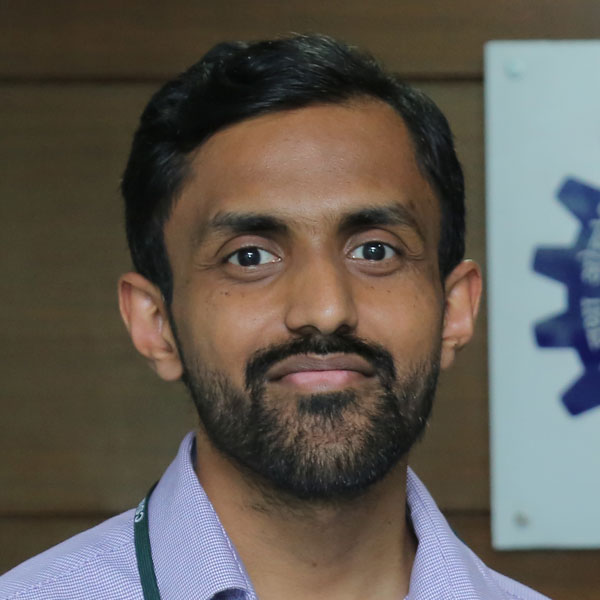
Vinod Scaria
Senior Scientist
CSIR Institute of Genomics and Integrative Biology (CSIR-IGIB), INDIA
Vinod Scaria is a clinician and computational biologist. His laboratory is interested in understanding the function, organization and regulation of vertebrate genome and involved in translating genomic technologies for clinical applications. He has been part of pioneering collaborative initiatives aimed at understanding the South Asian and Middle Eastern genome diversity and genetic epidemiology of diseases in the region. He has been part of the whole genome sequencing and analysis projects including the first Indian, Sri-Lankan and Malaysian genomes and is a member of the HUGO Pan-Asian Population Genomics Initiative (HUGO-PAPGI) task-force. He is also the co-founder of the Genomics for Understanding Rare Disease: India Alliance Network (GUaRDIAN), which is the pioneer and one of the largest networks of clinicians and researchers in India working on genetic diseases. He has adopted novel and creative strategies, such as the use of artificial intelligence, social media, and the participation of a large number of undergraduate students in collaborative genomics projects.
Vinod did his undergraduate medical education from Calicut Medical College, University of Calicut and PhD in Computational biology from University of Pune. Vinod has over 120 publications in international peer-reviewed journals, two book-chapters and two books to his credit. He is also in the editorial board of a number of reputed journals including Journal of Translational Medicine, PLoS ONE, Journal of Orthopaedics (Elsevier) PeerJ and International Journal of Rheumatic Diseases (Wiley). He is the recipient of the CSIR Young Scientist Award for Biological Sciences (2012), Kavli Frontiers of Science Fellow of the US National Academy of Sciences (2015) and an elected Fellow of the Royal Society of Biology (2017).
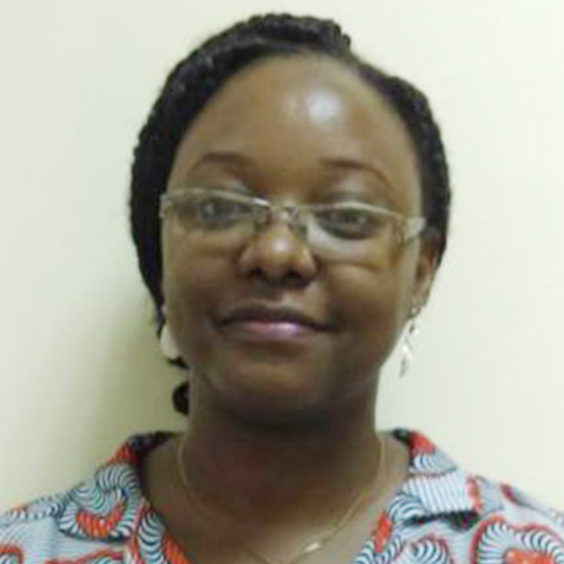
Nkya Siana
Department of Biological Sciences at Dar es Salaam University College of Education (DUCE)
Dr Nkya is a lecturer in the Department of Biological Sciences at Dar es Salaam University College of Education (DUCE) and a honorary lecturer at the Department of Biochemistry, Muhimbili University of Health and Allied Sciences (MUHAS). Dr Nkya has a background in Microbiology and Chemistry (BSc) and Molecular Biology (MSc). As part of her MSc training she conducted research in malaria focusing on molecular resistant markers of drug resistance in P. falciparum. In 2008, Dr Nkya spent six months at Kemri Wellcome Trust, Kilifi, Mombasa, Kenya as an intern studying the role of cytoadherence of infected red blood cells in severe malaria. Since joining MUHAS as a research scientist she has participated in a number of Sickle cell disease (SCD) projects and since 2009 has led SCD genetic research.
The primary focus of her PhD (Human genetics) was the genetic determinants of fetal haemoglobin: as part of this she established a genetic database of more than 1700 individuals with SCD with well described SCD phenotypes and undertook the first Genome Wide Association Study (GWAS) analysis of an African population in collaboration with Wellcome Trust Sanger Institute.
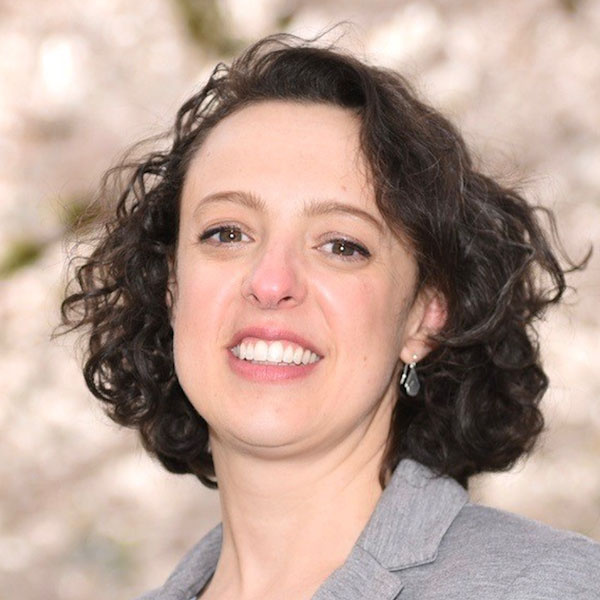
Prof Lea Starita
University of Washington
Department of Genome Sciences
Brotman Baty Institute for Precision Medicine
Lea is an Assistant Research Professor in the Genome Sciences department at the University of Washington and co-director of the Advanced Technology Lab at the Brotman Baty Institute for Precision Medicine where she develops massively parallel methods to determine the effects of genetic variation on protein function. Using this approach, she hopes to help solve the problem of variants of uncertain significance by scoring the pathogenic potential of genetic variants before they are found in the clinic.
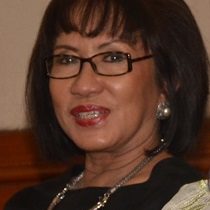
Herawati Sudoyo
Principal Investigator, Senior Research Fellow
Herawati is the Deputy for Fundamental Research of Eijkman Institute. She is also the head of Forensic DNA Laboratory and Principal Investigator at Genome Diversity and Diseases Laboratory. She specializes on mitochondria DNA as a powerful genetic markers for population studies. She has specific interests on fundamental information concerning the formation of functional mitochondrial in order to understand mitochondrial diseases and its diagnostic and therapeutic implications. Herawati also has big passion on studying the genetic diversity of Indonesian populations, particularly on its association with disease resistance and susceptibility as well as tracing human migration. Her research team is dubbed “Gene Hunter” and has been collecting samples from many places throughout the archipelago, including very remote areas. Using DNA markers, Herawati also played significant role in perpetrator identification of the 2004 Australian Embassy bombing case which subsequently led her to establish the Forensic DNA Laboratory in Eijkman Institute. She also initiates research on Indonesian wildlife forensics and population studies.
Herawati is an active member of various local and international organization, consortium, and scientific panel on forensics DNA, biorisk and biosafety, human genetics, and molecular biology network.
Herawati is an Honorary Associate Professor from Sydney Medical School, The University of Sydney, Australia.
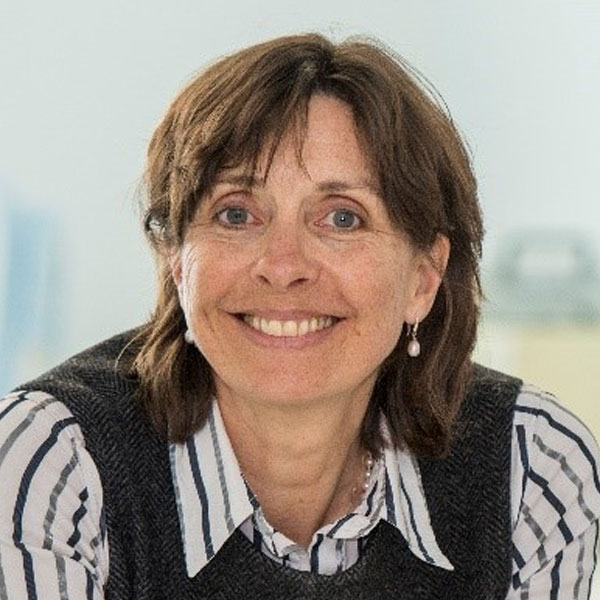
Prof Karen Temple
University of Southampton
Dr Karen Temple is Professor of Medical Genetics at the University of Southampton and Honorary Consultant in Clinical Genetics at University Hospital Southampton NHS Foundation Trust. She co-leads the Wessex Genome Medicine Centre and is past Director of the Academic Unit of Human Development and Health in the Faculty of Medicine. Her major research interests are in genomics, epigenomics and clinical characterization of childhood developmental disorders. She is recognized for her identification of new genetic imprinting syndromes including Temple syndrome, a condition with marked short stature and late onset obesity and has pioneered research into the epigenetic causes of transient neonatal diabetes (TND). She co-runs the European Reference Network clinic in Southampton for patients with imprinting disorders.
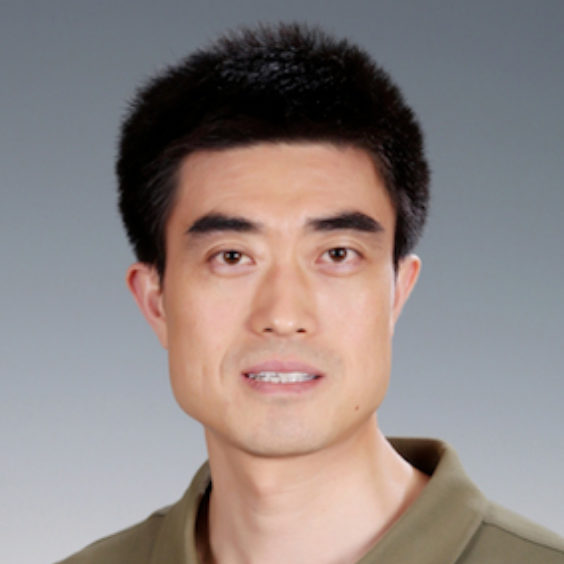
Wensheng Wei
Peking University, Beijing, China
Wensheng Wei was born in 1969 at Jiangsu province, China. He received his bachelor degree of Biochemistry from Peking University in 1991, and Ph.D. degree of Genetics from Michigan State University in 1999. He then went to Prof. Stanley Cohen’s lab at Stanford University School of Medicine for post-doctoral training, and became a research associate in 2005. Dr. Wei returned to Peking University in 2007 and became a principle investigator at the School of Life Sciences. He is currently jointly appointed as Investigator by Biomedical Pioneering Innovation Center (BIOPIC), Beijing Advanced Innovation Center for Genomics (ICG), and Peking-Tsinghua Center for Life Sciences (CLS).
Dr. Wei has published a number of papers in high-profile journals, including Cell, Nature, Nature Biotechnology, and PNAS, as either first or corresponding author. He has been granted four patents, and is the recipient of the follow-ing awards: China Patent Award, Tan Jiazhen Life Science Award, Scientific Chinese Man of the Year, Zheng Changxue Teaching Award, BAYER Investigator Award, Roche Chinese Young Investigator Award, Peking University Dongbao Fellowship, and the most popular teacher of School of Life Sciences award.
Dr. Wei’s group is mainly focused on the development of eukaryotic genome editing technology, especially their applications in dynamic imaging techniques and high-throughput functional genomics. The combination of for-ward and reverse genetic means is employed, often in a high-throughput fashion, for the identification of host genes or non-coding RNAs important for host response during microbial infections or tumorigenesis.
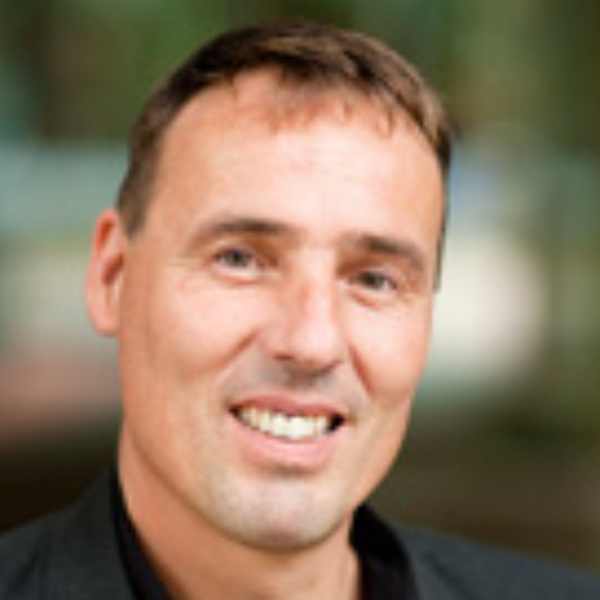
Prof Ernst Wolvetang
Prof Stem Cell Biology, Group leader Stem Cell Engineering Group
Director of UQ Centre for stem cell ageing and regenerative engineering
Australian Institute for Bioengineering and Nanotechnology, University of Queensland, Brisbane, St Lucia, QLD, 4072, Australia.
Prof Wolvetang is a group leader at the Australian Institute for Bioengineering and Nanotechnology at the University of Queensland (Australia), co-director of the UQ Centre “stem cell ageing and regenerative engineering”, leads the “Cell reprogramming Australia” collaborative network, is a principal investigator in the ARC Centre of Excellence “Stem Cells Australia” and was awarded the 2014 LSQ regenerative medicine prize. He obtained his PhD in Biochemistry from the University of Amsterdam, and has published >140 peer reviewed manuscripts. His laboratory employs iPSC as in vitro disease models and uses genome editing to interrogate the underlying gene regulatory networks and epigenetic bases of monogenic and complex neurological diseases.

